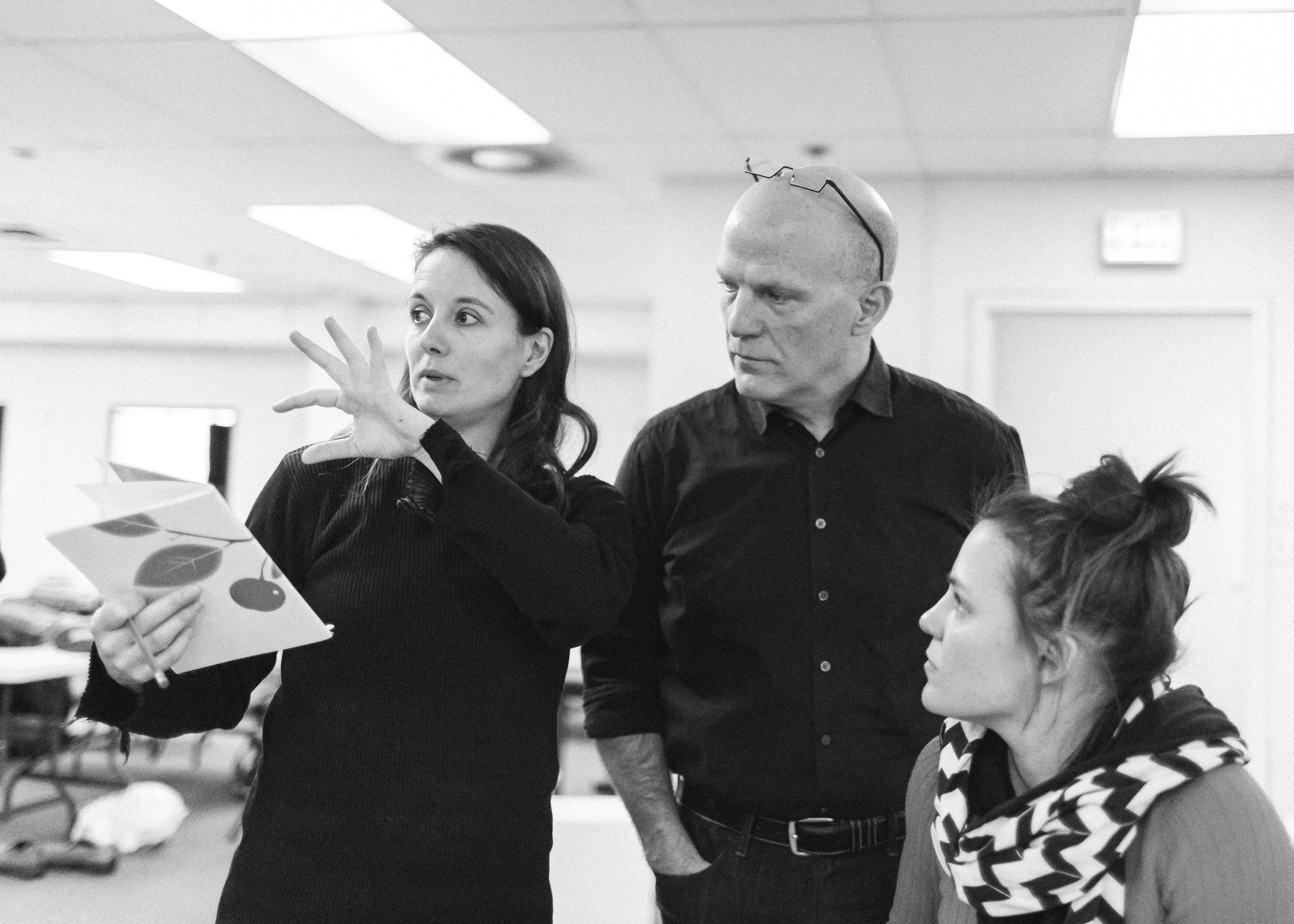A Director's Imagination
As Charles Newell explored the possibilities for staging Auburn’s script, he was drawn to the visionary work of the pioneering German dancer and choreographer Pina Bausch (1940-2009). Bausch’s signature technique—forged in decades of practice and experimentation with her legendary dance company, Tanztheater Wuppertal—fused elements of theatre, dance and German expressionism into a new dramatic form. Newell turned to Bausch’s techniques to unlock the performative possibilities of the interludes of Bellow’s language—the “Bellow music,” as Newell would say—that playwright Auburn placed throughout the play. These excerpts from the novel are spoken by characters who otherwise are voiceless, or in some way lack power or agency. Newell believed these rare moments of “Bellow music” should unfold in a heightened theatrical way; consequently, Bausch’s theories of performance became one of many useful tools Newell employed while devising the aesthetic of his production.
To fuel Newell’s creative process, Court Theatre Executive Director Angel Ysaguirre invited two principal dancers from Bausch’s Tanztheater Wuppertal to Chicago in February 2019 to conduct a performance workshop with Newell and the actors in the Augie March company. Pascal Merighi and Thusnelda Mercy introduced the cast to Bausch’s theories and methods.
Pictured at left, Merighi and Mercy lead the Augie March actors in exercises aiming to explore the emotions and intentions that are the wellsprings of physical gesture, the universal language of human expression. As Pina Bausch famously explained, “I’m not interested in how people move, but in what moves them.”
Photographs from Merighi and Mercy’s performance workshop, pictured right, offer a glimpse into the concepts and ideas he and the company used to devise a set of movement exercises.


